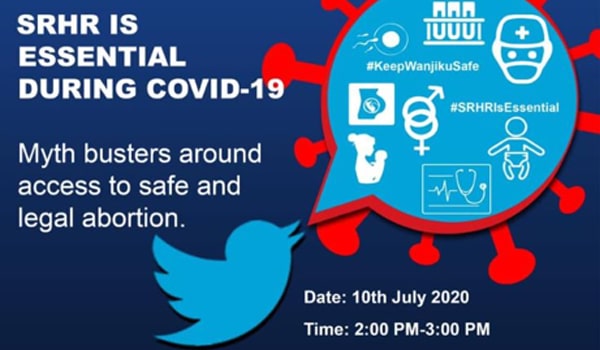
Privacy International has published an in-depth study with background information on sexual and reproductive rights in Kenya, informed by research carried out by KELIN, a network on legal and ethical issues, that started off working on HIV/AIDS and expanded their remit to include sexual and reproductive health and rights; key and affected populations; HIV and tuberculosis; litigation; and women, land and property rights. They advocate for the integration of constitutional and other human rights in policies, laws and operational frameworks/regulations relating to the right to health and the application of the constitutional values and principles and the rights-based approaches in the implementation of health services.
The key findings of the case study were that:
- despite the legality of abortion care in a range of circumstances, public awareness remains low,
- foreign influences play a significant role in Kenya, ranging from development aid funding to opposition campaigning, and
- technology-based tools facilitating access to sexual and reproductive rights are gradually emerging.
In July 2020, Kenya’s Senate has been considering a reproductive healthcare bill, which seeks to address reproductive health gaps. This is the second time the bill has come before the senate. The first time was in 2014. It has, once again, drawn fire fromits opponents, mainly bishops and other conservative church leaders.
The bill provides a framework governing access to family planning, safe motherhood, termination of pregnancy, reproductive health of adolescents and assisted reproduction. It makes clear that every person has the right to access reproductive health services. It also stipulates that every health care provider be obliged to provide family planning information and services to women who need them.
There is also a provision in the bill directing the national and county government to provide free antenatal care, delivery care and post-natal care for women and girls in Kenya.
In addition, the bill sets conditions under which a woman can seek abortion services. These include when there is an emergency, when the pregnancy would endanger the life or health of the mother and where there is a risk that the foetus would suffer from a severe physical or mental abnormality. It is worth noting that the bill allows for conscientious objection on the part of health providers to perform an abortion as long as they refer the patients to a willing provider. This doesn’t apply in the case of an emergency.
The bill also has provisions ensuring access to adolescent-friendly reproductive health services, but requiring parental consent.
Lastly, the bill also covers the issue of assisted reproduction services to address infertility. The sector is currently unregulated. The proposed bill sets out rules for providers as well as the rights of donors, surrogate mothers and patients.
The three main points of contention are termination of pregnancy, sexuality education for adolescents, and treatment of infertility. During debate it seems the sexuality education section has been watered down to focus more on “abstinence” in spite of evidence that denying information to adolescents only leads to more unintended pregnancies and sexually transmitted infections.
Below are the faces of the opposition, who say they promote “life” while, each year, 6,300 women die during pregnancy or childbirth in Kenya, and unsafe abortions contribute close to 17% of maternal deaths:

SOURCES: Privacy International, Country case-study: sexual and reproductive rights in Kenya,informed by research carried out by KELIN, 4 June 2020 ; VISUAL, KELIN, 10 July 2020 ; The Conversation, by Anthony Ajayi, Meggie Mwoka, 12 July 2020 ; PHOTO: Catholic Information Service for Africa, 26 June 2020



